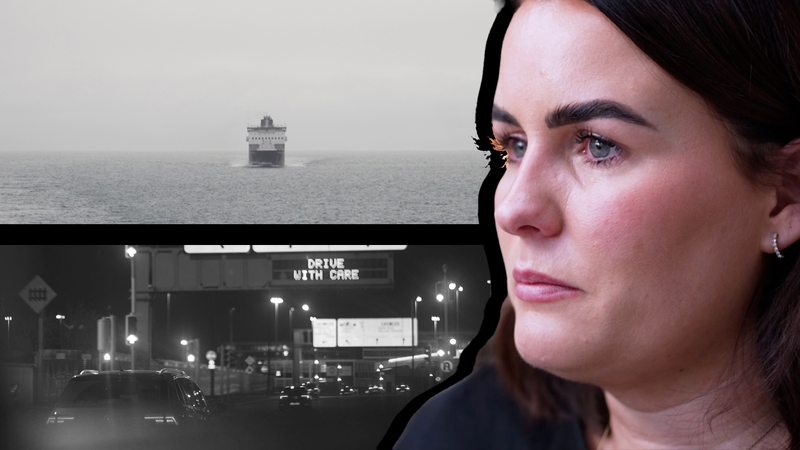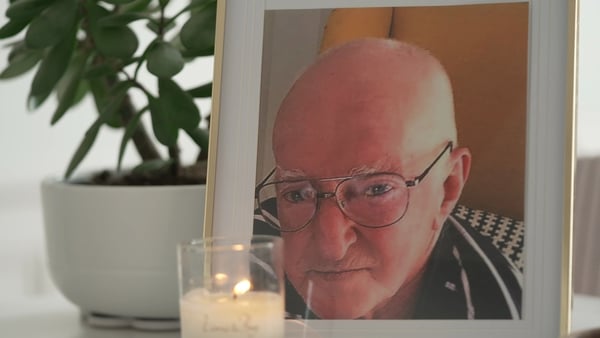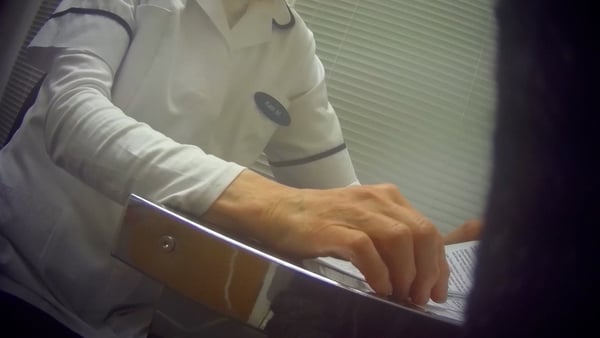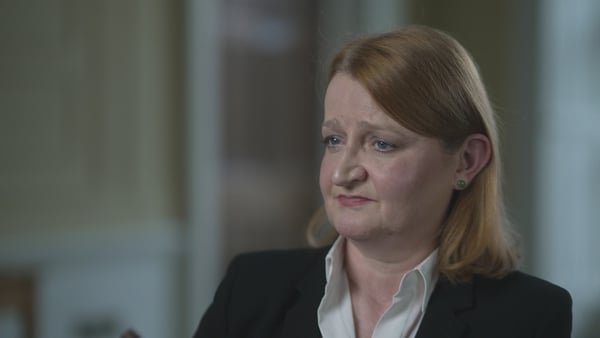On a dark February morning before anyone was awake, Alison Gibney and her partner Ian packed up their car to make the first boat to England.
"You almost feel like you're leaving with your hoods up in the dark of night," Alison told RTÉ Investigates.
The couple were travelling to Liverpool Women’s Hospital in the UK to get a termination.
Three days after arriving, Alison gave birth to a stillborn baby girl, Rose. She was Alison and Ian's first child.
"I expected it to be such a sad occasion but when she was born, I was just so happy to have her, to see her, to hold her."
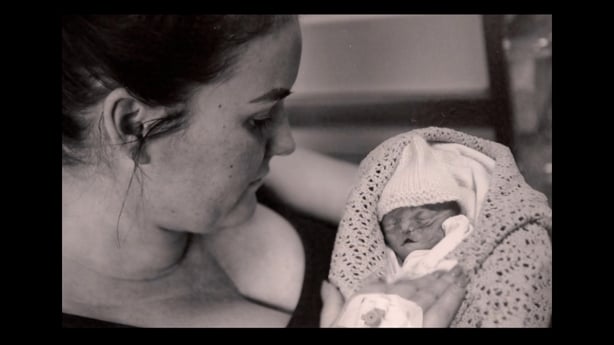
The circumstances of Rose’s stillbirth following a termination of pregnancy at 25 weeks in February 2022, catapulted Alison and Ian into a "nightmare" they could never have imagined.
"We were really excited," Alison said about discovering in September 2021 that they were expecting their first baby. "We have loads of friends who had small kids and we watched them grow up and all the fun that comes with it."
Alison's pregnancy had been textbook perfect. There was no indication to suggest anything was amiss until the day of her 20-week scan when, in Alison’s words, an eerie silence fell as the stenographer picked up on foetal anomalies.
"My heart sank," Alison recalled.
Alison and Ian then met with a cardiologist who explained there was something wrong with Rose’s heart.
The couple were told that even with surgical intervention, Rose would likely struggle on a day-to-day basis and her life expectancy would be low. It was at that appointment an abortion was mentioned for the first time.
"I remember the words were 'you have options’," Alison said. But Alison and Ian’s options were far from straightforward.
Read more: Treated like 'criminals': Leading barrister calls for urgent reform of abortion services
In a May 2018 referendum, Ireland voted by a majority to repeal the Eighth Amendment of the Constitution Act, thereby ensuring the introduction of abortion legislation early the following year.
That law permits terminations here during the first 12 weeks of pregnancy, with abortions outside that cut-off period only allowed in strict circumstances.
In foetal anomaly cases like Alison’s where conditions unexpectedly arise in the development of a foetus during pregnancy and which are generally detected well after the 12-week mark, Ireland’s law dictates terminations can only be carried out if two doctors agree, having examined the woman, that the condition affecting the foetus is likely to lead to its death either before, or within, 28 days of birth.
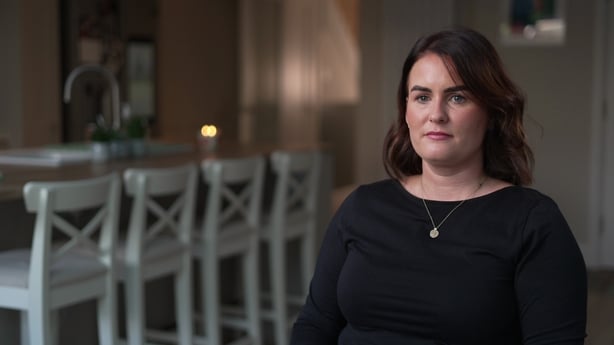
"On one hand, not continuing with the pregnancy was bad enough, but then to be told that you can’t do the procedure here is just insane. That set off a whole different dimension to what was already hell," Alison said.
A few days after Alison’s termination, when she was discharged from hospital in Liverpool, she and Ian got to take Rose home to Ireland.
However, avoiding any complications at customs meant making a difficult decision.
"They gave us a letter if we were stopped to say she was stillborn, but they advised us to hide her to be on the safe side," an emotional Alison explained.
"I didn’t want her to be on her own, so we had her in the back seat, and we sat with her. She had to have ice under her in her basket and then when we came to go to the boat, we had to put her in the boot and cover her up with our coats."
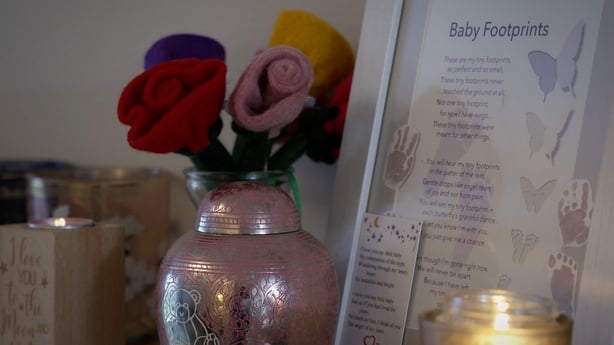
Back in Dublin, Alison and Ian, together with their families, held a cremation service for Rose but she says their experience will leave them forever traumatised.
"I’m angry that it was allowed to happen to me. Nobody knows that this still goes on. Something needs to change."
It is those kinds of traumatic circumstances which form a mainstay of a landmark review of Ireland's abortion legislation authored by Barrister Marie O’Shea. The Termination of Pregnancy Act 2018 provided for such a review three years after its implementation. Commissioned by the Department of Health, the report makes several recommendations.
"What I have said to the Minister for Health is that this 28 day [rule] is an absolute and utter nonsense," Ms O’Shea told RTÉ Investigates in her only media interview since delivering her report to Government early last year.
"It’s cruel, and it’s too prescriptive. It’s not good law and it leads people to be in absolutely profoundly sad conditions."
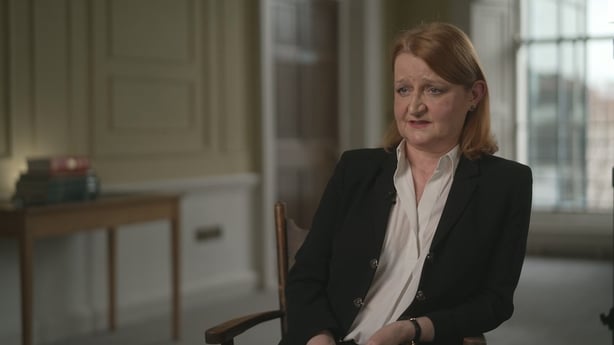
Marie O’Shea’s review states Section 11, that relating to foetal anomaly cases, lacks clarity as to how and when it applies, adding it can be difficult to implement in practice, even in cases where the condition may be fatal and associated with severe morbidity and/or disability and there is not any definitive list of conditions where death occurs in utero or within 28 days of birth.
"If you have to send somebody abroad, culturally and socially you’re framing it as a criminal and abhorrent act and that is in a person’s head," Marie O’Shea added. "I don’t think the electorate would want somebody carrying around that stigma."
In sharing her story, Alison Gibney represents a much larger group of affected parents.
In fact, the Abortion Support Network (ASN), a UK charity which helps women who need to travel to access safe, legal abortion, told RTÉ Investigates since abortion laws were introduced in Ireland, almost 1,000 people here have contacted it about accessing termination services abroad.
In that time, ASN has spent just short of €314,000 supporting people from the Republic of Ireland to travel for an abortion. Most clients from Ireland are, ASN said, women affected by foetal anomaly diagnoses.
Addressing Barrister Marie O'Shea’s recommendations for legislative change will present difficult choices for Government. The Department of Health told RTÉ the review was currently under consideration.
"Something has to happen, but it does take political will and courage to do that, and it certainly needs political leadership from the top," Ms O’Shea said.
Watch RTÉ Investigates: Ireland’s Abortion Services on Monday April 15 at 9.35pm on RTÉ One and RTÉ Player. Produced and directed by Lucy Kennedy with reporter Aoife Hegarty.
